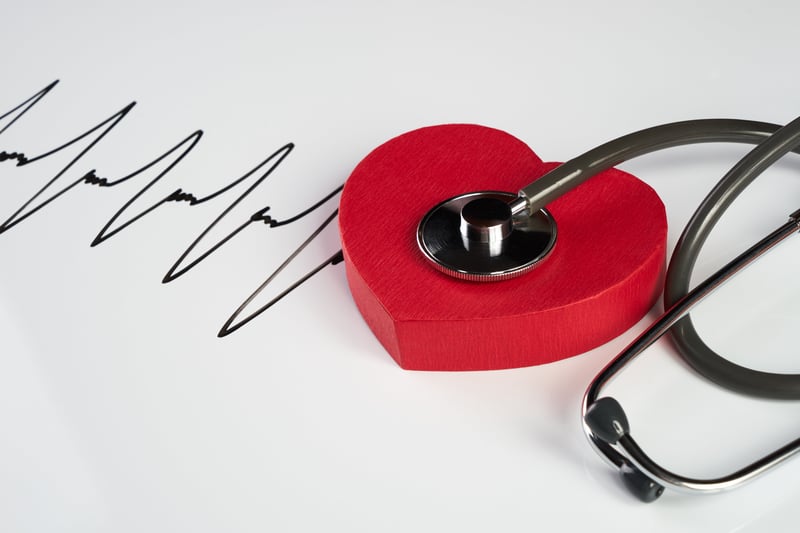If you are having trouble with our mobile app, you must remove and reinstall the app on your device.
Updating the app alone will not fix the issue. Your login will not be impacted. We sincerely apologize for this inconvenience.
Market Pharmacy is now G&G Pharmacy, conveniently located in Marketplace Foods on the corner of Hwy 2 & Broadway!
Same great staff and same great care!
Get Healthy!

- Posted February 17, 2023
Irregular Heartbeat: What Is It and How Do You Treat It?
Many things can make your heart skip a beat -- the words to a song, a case of the nerves or a near car accident -- but these temporary palpitations aren't usually cause for concern.
But much more serious, and sometimes deadly, things can throw off the heart's rhythm, including dehydration, a history of heart disease or a heart defect. Medications, intense exertion or anxiety can also trigger heart rhythm changes, or arrhythmias.
According to Dr. Mark Anderson of Johns Hopkins University in Baltimore, "the heart's system is not unlike the electrical system in a car," which helps the car run properly. The electrical pulses keep the heart's rhythm smooth and even, he explained in a recent article.
But when the electric signals that control the pace of your heartbeat malfunction, that is a heart arrhythmia, according to the American Heart Association (AHA).
What is heart arrhythmia?
Arrhythmias can feel like flutters or butterflies in your chest or that your heart is racing or pounding. Heart arrhythmias can also cause the heart rhythm to slow down or skip. Most of the time, they are harmless, but they can signify something more serious.
What are the types of heart arrhythmia?
The Mayo Clinic groups heart arrhythmias into two main types, tachycardia (faster heartbeats) and bradycardia (slower heartbeats).
Types of tachycardia
- Atrial fibrillation (a-fib) is one of the most common types of arrhythmia. According to the U.S. Centers for Disease Control and Prevention, more than 12 million people will experience a-fib by 2030. It is described as a rapid, chaotic heartbeat and is associated with an increased risk of blood clots and stroke.
- Atrial flutter is like a-fib. It starts with an electrical short-circuit in the upper heart chamber. The heartbeats are rapid, but not chaotic like with a-fib. It is also associated with an increased risk of stroke.
- Supraventricular tachycardia (SVT) is categorized as a sudden pounding of the heart. It is an umbrella term for arrhythmias that start above the lower heart chambers. SVT can also lead to serious complications such as stroke and other heart diseases.
- Ventricular fibrillation is a heart rhythm issue in the heart's lower ventricles. It is a misfire in the electrical signals of the heart that cause the ventricles to flutter randomly. If normal heart rhythm is not restored, it can lead to death. Ventricular fibrillation is most found in those with underlying heart disease or those who have experienced trauma.
- Ventricular tachycardia is also due to defective electrical pulses in the heart's lower ventricles. It is usually harmless for people with healthy hearts, but it can be life-threatening for a heart already weakened by heart disease.
Types of bradycardia
- Sick sinus syndrome is due to defective sinus nodes. The sinus nodes are the natural pacemakers in the heart. Heart rhythms will beat too quickly or, more commonly, too slowly when malfunctioning.
- Conduction block is a heart rhythm condition caused by a breakdown in the flow of the electrical pulses that make the heart pump. The blockage slows the heart rate because the messages of when to pump and contract are not coming on time.
What causes heart arrhythmia?
The AHA lists many causes that can lead to heart arrhythmias. They can include disease or illness, a stressful lifestyle, too much drinking and smoking, certain medications, trauma, surgery, and genetic or birth defects.
Heart arrhythmia symptoms
According to the Mayo Clinic, heart arrhythmias often don't have any signs or symptoms, but a doctor may catch them during a routine visit.
Sometimes, mild symptoms can include flutters or butterflies in your chest, a racing or slowing heart rate or a heart pounding. More severe symptoms may include chest pain, sweating, shortness of breath, lightheadedness, fatigue, and dizziness or fainting. If these more severe symptoms occur, they should be addressed immediately.
Heart arrhythmia treatments
Heart arrhythmias are often harmless and don't need to be treated, according to the AHA. Before that can be decided, a doctor must be aware of the issue and determine an underlying cause. If it is determined that treatment needs to happen, they may suggest several different options:
- Increased physical activity, reduced caffeine or alcohol intake, and stress management
- Heart arrhythmia medications or changes in medications that may be causing the symptoms
- Surgery to remove blockages or correct defects may be recommended. Surgery may also be needed to implant devices such as a pacemaker, which keeps the heart beating at a proper pace
How to prevent heart arrhythmia
The AHA also suggests heart arrhythmias can be prevented with heart-healthy habits:
- A heart-healthy diet includes fruits, vegetables, healthy fats, lean proteins, fiber and plenty of water
- Regular exercise, especially cardiovascular exercise
- Weight loss or maintaining a healthy weight
- Quit smoking and other drugs
- Limiting or avoiding caffeine and alcohol
- Practicing stress management and reducing anxiety
- Using medications as directed and tell your doctor about all the medicines or supplements you take, including those bought without a prescription






